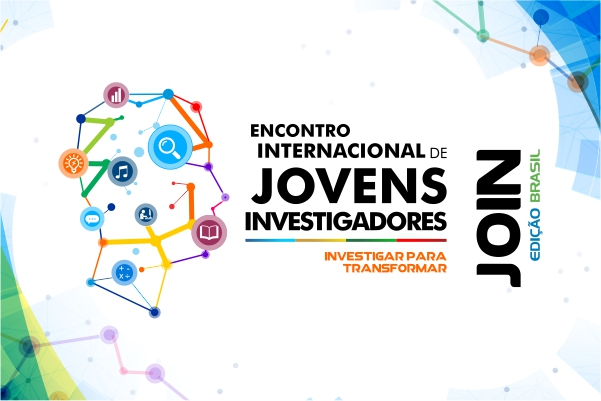EARTHQUAKE SIMULATOR IN VIRTUAL REALITY
"2017-10-12 00:00:00" // app/Providers/../Base/Publico/Artigo/resources/show_includes/info_artigo.blade.php
App\Base\Administrativo\Model\Artigo {#1845 // app/Providers/../Base/Publico/Artigo/resources/show_includes/info_artigo.blade.php #connection: "mysql" +table: "artigo" #primaryKey: "id" #keyType: "int" +incrementing: true #with: [] #withCount: [] +preventsLazyLoading: false #perPage: 15 +exists: true +wasRecentlyCreated: false #escapeWhenCastingToString: false #attributes: array:35 [ "id" => 49752 "edicao_id" => 73 "trabalho_id" => 949 "inscrito_id" => 2183 "titulo" => "EARTHQUAKE SIMULATOR IN VIRTUAL REALITY" "resumo" => "In Brazil, earthquakes are very rare because of their location, which is in the middle of a tectonic plate. Due to this issue, many Brazilians, especially the descendants of Japanese living in Brazil, are not aware of basic safety measures in earthquake situations. These Brazilians end up having difficulties when leaving Brazil and going to Japan, as it is a country with a great incidence of earthquakes, and these people are not properly prepared for situations of natural disaster. In spite of the various trainings given in Japan to prepare the population for natural disasters, these trainings usually require great human effort and a team prepared to offer these trainings. However, it is notorious that simulators are good approaches to learning and so this project comes through simulation in virtual reality, assisting unprepared people who are unaware of earthquake safety protocols. An earthquake-oriented education simulator was developed to assist people in learning safety measures in earthquake situations. Two free code software, Unreal 4 Engine and Blender, were used. Blender was used to model the 3d objects used in the scene, and the Unreal 4 Engine was used to develop the simulator and build the scenario with realistic graphics. The experiments were conducted inside college with students, teachers and technicians. Good results were obtained with the experiments performed. It was found in the tests that the simulator actually improved people's understanding of earthquakes, even though most of them already have a brief understanding of security measures. It was also confirmed, the relevance that this work has for Japanese descent, confirming the initial motivation." "modalidade" => "Comunicação Oral (CO)" "area_tematica" => "ASTRONOMIA / FÍSICA" "palavra_chave" => "EARTHQUAKE SIMULATOR, VIRTUAL REALITY, DISASTER SIMULATOR VR" "idioma" => "Inglês" "arquivo" => "TRABALHO_EV081_MD1_SA70_ID2183_15092017231616.pdf" "created_at" => "2020-05-28 15:53:36" "updated_at" => "2020-06-10 12:56:41" "ativo" => 1 "autor_nome" => "FABIO QUIMIO PEREIRA FUJII" "autor_nome_curto" => "FABIO FUJII" "autor_email" => "fujii.kimio.k@gmail.com" "autor_ies" => "UNIVERSIDADE FEDERAL DE MATO GROSSO DO SUL (UFMS)" "autor_imagem" => "" "edicao_url" => "anais-iii-join---edicao-brasil" "edicao_nome" => "Anais III JOIN / Edição Brasil" "edicao_evento" => "III Encontro de Jovens Investigadores - Edição Brasil" "edicao_ano" => 2017 "edicao_pasta" => "anais/join/2017" "edicao_logo" => "5e4a1cc2ad894_17022020015530.jpg" "edicao_capa" => "5f186f10b9555_22072020135336.jpg" "data_publicacao" => null "edicao_publicada_em" => "2017-10-12 00:00:00" "publicacao_id" => 47 "publicacao_nome" => "Anais JOIN" "publicacao_codigo" => "2594-8318" "tipo_codigo_id" => 1 "tipo_codigo_nome" => "ISSN" "tipo_publicacao_id" => 1 "tipo_publicacao_nome" => "ANAIS de Evento" ] #original: array:35 [ "id" => 49752 "edicao_id" => 73 "trabalho_id" => 949 "inscrito_id" => 2183 "titulo" => "EARTHQUAKE SIMULATOR IN VIRTUAL REALITY" "resumo" => "In Brazil, earthquakes are very rare because of their location, which is in the middle of a tectonic plate. Due to this issue, many Brazilians, especially the descendants of Japanese living in Brazil, are not aware of basic safety measures in earthquake situations. These Brazilians end up having difficulties when leaving Brazil and going to Japan, as it is a country with a great incidence of earthquakes, and these people are not properly prepared for situations of natural disaster. In spite of the various trainings given in Japan to prepare the population for natural disasters, these trainings usually require great human effort and a team prepared to offer these trainings. However, it is notorious that simulators are good approaches to learning and so this project comes through simulation in virtual reality, assisting unprepared people who are unaware of earthquake safety protocols. An earthquake-oriented education simulator was developed to assist people in learning safety measures in earthquake situations. Two free code software, Unreal 4 Engine and Blender, were used. Blender was used to model the 3d objects used in the scene, and the Unreal 4 Engine was used to develop the simulator and build the scenario with realistic graphics. The experiments were conducted inside college with students, teachers and technicians. Good results were obtained with the experiments performed. It was found in the tests that the simulator actually improved people's understanding of earthquakes, even though most of them already have a brief understanding of security measures. It was also confirmed, the relevance that this work has for Japanese descent, confirming the initial motivation." "modalidade" => "Comunicação Oral (CO)" "area_tematica" => "ASTRONOMIA / FÍSICA" "palavra_chave" => "EARTHQUAKE SIMULATOR, VIRTUAL REALITY, DISASTER SIMULATOR VR" "idioma" => "Inglês" "arquivo" => "TRABALHO_EV081_MD1_SA70_ID2183_15092017231616.pdf" "created_at" => "2020-05-28 15:53:36" "updated_at" => "2020-06-10 12:56:41" "ativo" => 1 "autor_nome" => "FABIO QUIMIO PEREIRA FUJII" "autor_nome_curto" => "FABIO FUJII" "autor_email" => "fujii.kimio.k@gmail.com" "autor_ies" => "UNIVERSIDADE FEDERAL DE MATO GROSSO DO SUL (UFMS)" "autor_imagem" => "" "edicao_url" => "anais-iii-join---edicao-brasil" "edicao_nome" => "Anais III JOIN / Edição Brasil" "edicao_evento" => "III Encontro de Jovens Investigadores - Edição Brasil" "edicao_ano" => 2017 "edicao_pasta" => "anais/join/2017" "edicao_logo" => "5e4a1cc2ad894_17022020015530.jpg" "edicao_capa" => "5f186f10b9555_22072020135336.jpg" "data_publicacao" => null "edicao_publicada_em" => "2017-10-12 00:00:00" "publicacao_id" => 47 "publicacao_nome" => "Anais JOIN" "publicacao_codigo" => "2594-8318" "tipo_codigo_id" => 1 "tipo_codigo_nome" => "ISSN" "tipo_publicacao_id" => 1 "tipo_publicacao_nome" => "ANAIS de Evento" ] #changes: [] #casts: array:14 [ "id" => "integer" "edicao_id" => "integer" "trabalho_id" => "integer" "inscrito_id" => "integer" "titulo" => "string" "resumo" => "string" "modalidade" => "string" "area_tematica" => "string" "palavra_chave" => "string" "idioma" => "string" "arquivo" => "string" "created_at" => "datetime" "updated_at" => "datetime" "ativo" => "boolean" ] #classCastCache: [] #attributeCastCache: [] #dates: [] #dateFormat: null #appends: [] #dispatchesEvents: [] #observables: [] #relations: [] #touches: [] +timestamps: false #hidden: [] #visible: [] +fillable: array:13 [ 0 => "edicao_id" 1 => "trabalho_id" 2 => "inscrito_id" 3 => "titulo" 4 => "resumo" 5 => "modalidade" 6 => "area_tematica" 7 => "palavra_chave" 8 => "idioma" 9 => "arquivo" 10 => "created_at" 11 => "updated_at" 12 => "ativo" ] #guarded: array:1 [ 0 => "*" ] }



